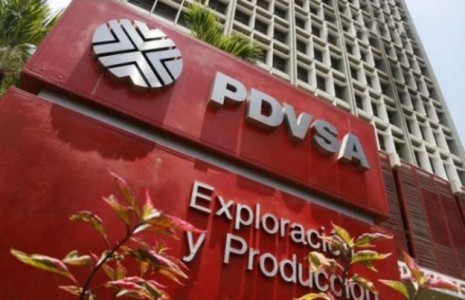
CARACAS – Venezuela’s state-run company PDVSA has requested its partners in at least a half dozen joint ventures pay for naphtha imported to produce exportable crudes amid a punishing oil price crash, according to sources and a company letter seen by Reuters.
With at least some partners likely to balk at the request, PDVSA could face even bigger obstacles to import diluents and, in consequence, to keep barrels flowing from the Orinoco belt, its main producing region.
PDVSA is responsible for providing the naphtha, or light crude, needed to dilute the extra heavy oil produced at the Orinoco Belt, according to contracts signed with foreign partners including Chevron, Repsol and ONGC.
But the company has now asked some of its foreign partners to cover the payments as of this year.
“The joint venture you currently represent will have to purchase the naphtha volumes needed to meet your production plan for 2016,” reads a letter sent to companies working in the Orinoco.
Caracas-based PDVSA did not immediately respond to a request for comment.
As imported diluents are increasingly crucial to transport and market Venezuelan crudes amid declines in PDVSA’s own light and medium oil output and refinery frequent stoppages, some companies might agree to the deal.
A barrel of Venezuelan Merey or DCO heavy crude needs around 30 percent to 50 percent of diluent to be exportable. A joint venture that produces 25,000 barrels per day, for example, would spend around $9 million a month on naphtha purchases at current spot prices in the U.S. Gulf Coast.
Two sources at foreign firms, who, according to Venezuelan law can only have a maximum stake of 40 percent in joint ventures, said they will shoot down the proposal.
“Our contract is specific when saying PDVSA is in charge of supplying the diluents. We cannot pay for the imports,” one of the sources said.
Since mid-2015, PDVSA has bought around 11.5 million barrels of African light and medium crudes, plus some 2 million barrels per month of heavy naphtha, according to vessel tracking data and PDVSA’s internal exports and imports reports.
Oil squeeze
Oil prices, which on Friday plunged to close below $30 a barrel for the first time in 12 years, have energy companies across the world reeling.
In neighboring Brazil, Petroleo Brasileiro SA, the state-controlled oil producer also known as Petrobras, last week slashed its investment plan for the third time in just over six months as it tries to preserve cash to pay its debt.
The oil crash is slamming OPEC nation Venezuela, which depends on oil for 96 percent of its income, amid a profound recession and PDVSA’s major debt obligations.
PDVSA accumulated pending invoices on its imports, including naphtha, in November-December. That led to a backlog of vessels around its ports with suppliers demanding to be paid before they discharged.
Trading sources say some providers are now requesting PDVSA prepay cargoes and others are using intermediaries to secure payments, likely increasing PDVSA’s financial burden.
To avoid pricier spot payments, PDVSA said in an interview last year it is seeking to secure long-term supply contracts.
PDVSA has been trying to cut costs, but its drive has been stymied by the Venezuelan export barrel’s price slipping to around $24, the lowest since late 2003.
The company is mulling refinancing options, according to its president, Eulogio Del Pino, a low-profile Stanford-educated engineer seen as a reformer.
PDVSA would likely make cash calls to ask partners to pay for the naphtha.
“It would be inconvenient for everybody if purchases of diluents get halted, but the way to solve this is not by asking for more money to the partners,” said another executive who asked not to be named.
Bron: CuracaoChronicle


Nog een reden om niet al te optimistisch te zijn over Venezolaanse plannen, die geld kosten. Green Town kan het overigens best af zonder naftaverdunning.
Als raffinaderijen steeds meer vastlopen op die onverdunde Venezolaanse troep, lost het probleem zichzelf op. Olie is wereldwijd op weg naar de uitgang. Hopelijk dwingt het onverkoopbare olieproduct Curacao de nieuwe toekomst in. Ondanks de omni-aanwezigheid van Pueblo Soberano kluivers in die branche.
Gaat niet lukken. Aruba zal moeten betalen.
Nou, dat is raar! Ze hebben wel bijna $ 1 miljard om de raffinaderij van Aruba op te knappen. Of zou dat ook niet lukken?